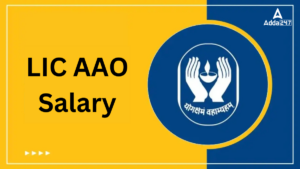Table of Contents
The Reserve Bank of India (RBI) on 17th November 2020 took complete control of the Lakshmi Vilas Bank (LVB) and proposed a merger with the DBS Bank india, a unit of Singapore’s largest bank. With the control over LVB, the RBI has also brough it under moratorium for 30 days starting from November 17 to December 16. This is the third time when RBI has took control of a bank in a very short span of time. Before LVB, Punjab and Maharashtra Co-operative (PMC) Bank and Yes Bank Ltd was also brought under the RBI.
To protect the depositors interest, the RBI, by exercising the powers conferred under Sub-section (1) of Section 36 ACA of the Banking Regulation Act 1949 and with the consultation with Central Government, overrided the Board of Directors of LVB for 30 days. The withdrawal limit of Rs.25000 is also capped for account holders and creditors. However, the account holders can withdraw more than Rs. 25000 only in extraordinary situations like medical emergency, education etc.
T. N. Manoharan, former Non Executive Chairman of Canara Bank has been appointed as the Administrator. The Administrator shall have all powers of the Board of Directors of the banking company and shall discharge the duties and functions of the Board of Directors as per provisions of the Banking Regulation Act, 1949.
Why Lakshmi Vilas Bank Ltd. placed under Moratorium?
As per the official release from RBI, the Lakshmi Vilas Bank has undergone a steady decline and continuous losses over the last three years. The bank has also failed on many parameters like:
- Serious deterioration in the financial position of the bank
- Declining advances and mounting non-performing assets (NPAs)
- Continuous withdrawal of deposits and low levels of liquidity
- Serious governance issues and practices in the recent years which have led to deterioration in its performance. The bank was placed under the Prompt Corrective Action (PCA) framework in September 2019.
The RBI has assured the depositors of the LVB that their interest will be fully protected and there is no need to panic.
Proposed Merger of Lakshmi Vilas Bank with DBS Bank India
The RBI has taken these issues under its consideration and concluded that in the absence of a credible revival plan, with a view to protect depositors’ interest and in the interest of financial and banking stability, there is no alternative but to apply to the Central Government for imposing a moratorium under section 45 of the Banking Regulation Act, 1949.
In terms of the provisions of the Banking Regulation Act, the Reserve Bank has drawn up a scheme for the bank’s amalgamation with another banking company. Therefore, the RBI announced a draft merger scheme of Lakshmi Vilas Bank (LVB) with DBS Bank India Ltd (DBIL). DBIL is an unit of DBS Bank Ltd, Singapore- a subsidiary of DBS Group Holdings Limited (leading financial services group).
DBIL was issued a banking license to operate as banking company on October 4, 2018. As on 30th June, 2020- its total Regulatory Capital was ₹7,109 crore (against Capital of ₹7,023 crore as on March 31, 2020) and GNPAs and NNPAs were low at 2.7% and 0.5% respectively.
According to the draft scheme of amalgamation, on and from the appointed date, the entire amount of the paid-up share capital and reserves and surplus, including the balances in the share/securities premium account of the LVB, shall stand written off, and the transferor bank (LVB) shall cease to exist by operation of the scheme, and its shares or debentures listed on any stock exchange shall stand delisted.”
Impacts & Challenges
DBS will bring an additional capital of ₹2500 crore to support the credit growth of the merged entity. As per the DBS, the proposed merger will provide a better prospects stability to LVB’s Account holders, depositors, and employees in a time of uncertainty.
However, some experts feel that shareholders of LVB will lose complete value of the shares they own. “Because of the write-off in paid-up share capital and reserves and surplus, the bank’s equity will go down to zero”.
This proposed merger will also allow the DBIL to scale its customer base and network, particularly in South India, which has longstanding and close business ties with Singapore.



 GA Capsule for SBI Clerk Mains 2025, Dow...
GA Capsule for SBI Clerk Mains 2025, Dow...
 The Hindu Review October 2022: Download ...
The Hindu Review October 2022: Download ...
 LIC AAO Salary 2025, Revised Structure, ...
LIC AAO Salary 2025, Revised Structure, ...


